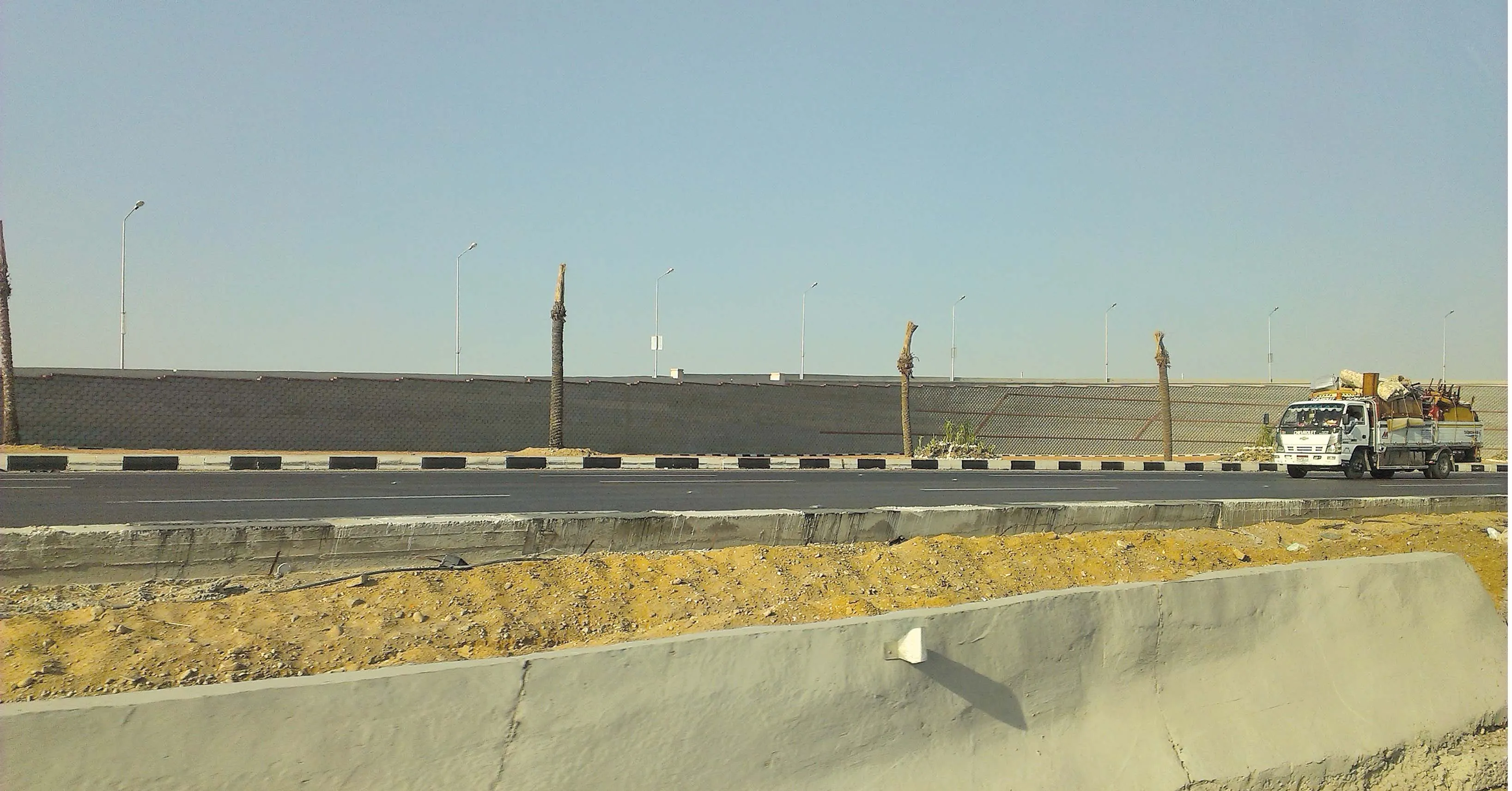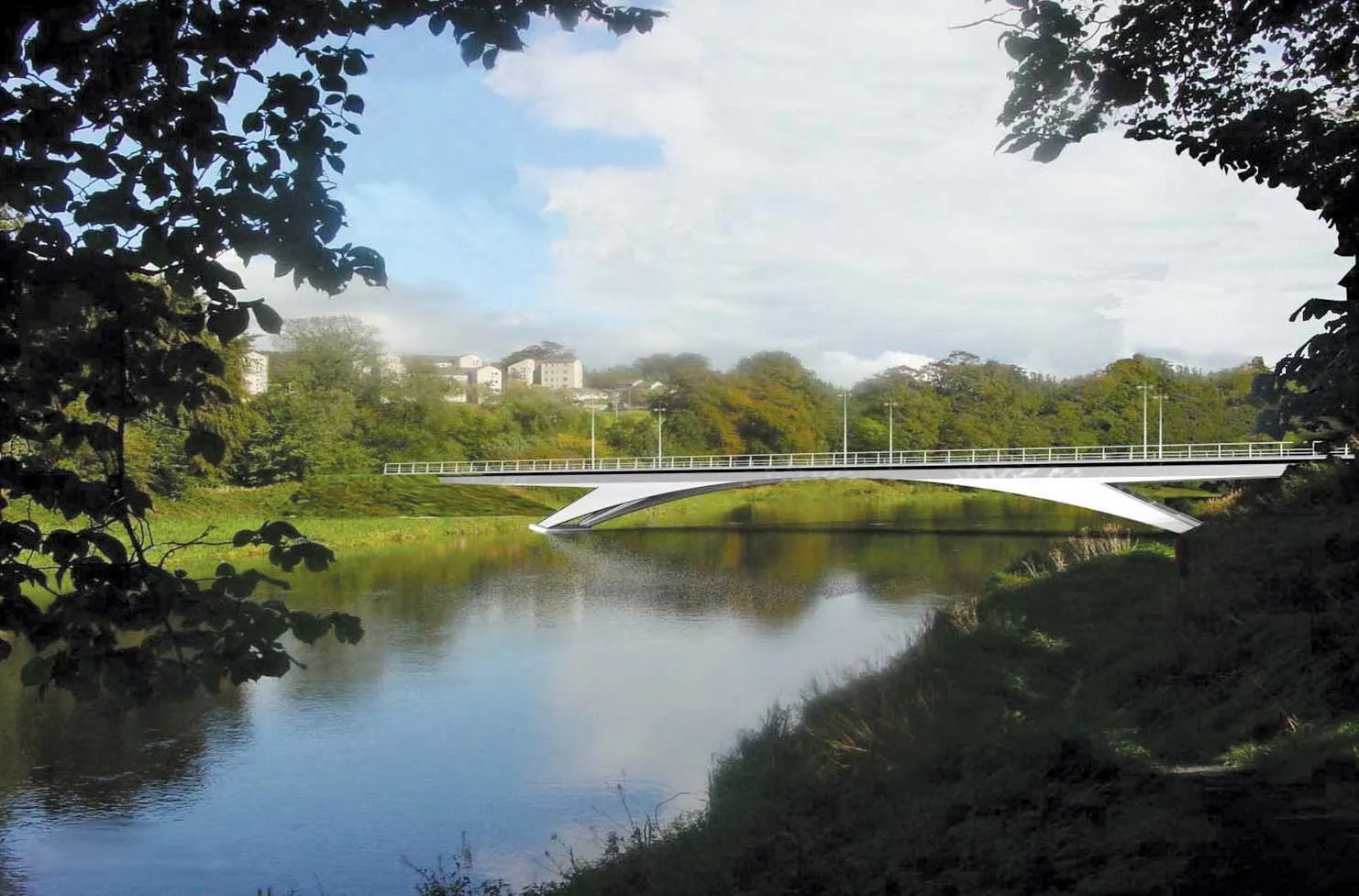Egypt is developing its road network – local reporting and images by Egypt correspondent Mohammed Elsayed Tantawy. Egypt is now gearing up its road construction activity, with a view to reducing congestion and improving traffic flow. The country’s main highway connecting capital Cairo with the port city of Alexandria has already seen a major widening programme, but other important routes are also now being upgraded and improved. The road development programme started in earnest some years ago but was delaye
February 20, 2014
Read time: 4 mins

Egypt is developing its road network – local reporting and images by Egypt correspondent Mohammed Elsayed Tantawy
Egypt is now gearing up its road construction activity, with a view to reducing congestion and improving traffic flow. The country’s main highway connecting capital Cairo with the port city of Alexandria has already seen a major widening programme, but other important routes are also now being upgraded and improved.
The road development programme started in earnest some years ago but was delayed due to the period of political instability the country suffered. As much of the country’s road construction programme is being carried out by the Egyptian army, this has delayed the process. But with stability now having returned, the Engineering Department of the Egyptian army is now resuming its programme of works to develop the country’s transport infrastructure.
Work is being carried out to improve traffic flow and capacity on the 100km Cairo-Ismaïlia Desert Road. The plans involve upgrading the status of the route to a freeway instead of its earlier designation as an expressway. The section being upgraded measures 30km long, with this work divided into two stages. The first phase of the work is for a 3.5km section that starts at Elsalam City and runs as far as the Elobour Tunnel, which features a width of 17.1m. The improvement works involve widening the route so that the roadway features four lanes in either direction with paved shoulders, instead of the original three lane layout. The second stage runs from the Elobour Tunnel to 10th Ramadan City, a distance of 26.5km length and 20.6 m width. For this section of the project, the road has been widened to five lanes in either direction with a width of 20.6m, in addition to the paved shoulders. The previous road design for this stretch also had just three lanes in either direction and was unsuited to the traffic volumes it had to carry. Both sections feature a median strip, which varies in width from 6-30m.
To improve safety, three special bridges were constructed to allow drivers to make U-turns. These are the 1.18km Hikstep Bridge, the 1.158km Future City Bridge and the 1.12km International Medical Centre Bridge, all three of which are 12.2m wide. The upgraded stretch of the Cairo-Ismaïlia Desert Road has been designed to improve safety for users, featuring 2000 lighting poles, 25,000 reflective markings, 750 signs and 18km of concrete barriers. The remaining 70km of the route may well be improved in the future as additional funding becomes available.
Another key project has been the construction of the Lieutenant General Saad Eldeen Elshazly Road, a 5km link road connecting the Cairo Ring Road with the upgraded Cairo-Ismaïlia Desert Road. This new link is being constructed in order to reduce traffic jams at the start of the Cairo-Ismaïlia Desert Road. This is intended to cut congestion and is expected to decrease travel times at peak time to just five minutes instead of the 45 minutes drivers can often experience at present. Construction of this new road is expected to save some US$10 million/year in fuel alone.
The new Lieutenant General Saad Eldeen Elshazly Road features three lanes in each direction, with the road having a total width of 13.9m. The Engineering Department of the Egyptian army took three months to finalise this new road, which is considered as a strategic civil project. The road was designed as a freeway without any intersections along the route.
The new road connects with the Cairo Ring Road at a T-Interchange. It then runs in a tunnel measuring 27m wide by 65m long and 6.5m high, under the Cairo Ring Road. The new link is connected at its other end to the Cairo-Ismaïlia Desert Road. by the Saad Eldeen Elshazly Bridge. This 1.1km long bridge has been built to cross railway lines.
The link is of economic importance as Ismaïlia does attract tourists from within Egypt at present and there is potential to boost its appeal as a destination for international tourists. It takes around 90 minutes to drive to Ismaïlia from Cairo. From Ismaïlia it is approximately a four-hour drive to Sharm el-Sheikh in South Sinai. Driving to the Taba Border Crossing at Taba and the Rafah Border Crossing at Rafah are both drives of approximately four hours.
Egypt is now gearing up its road construction activity, with a view to reducing congestion and improving traffic flow. The country’s main highway connecting capital Cairo with the port city of Alexandria has already seen a major widening programme, but other important routes are also now being upgraded and improved.
The road development programme started in earnest some years ago but was delayed due to the period of political instability the country suffered. As much of the country’s road construction programme is being carried out by the Egyptian army, this has delayed the process. But with stability now having returned, the Engineering Department of the Egyptian army is now resuming its programme of works to develop the country’s transport infrastructure.
Work is being carried out to improve traffic flow and capacity on the 100km Cairo-Ismaïlia Desert Road. The plans involve upgrading the status of the route to a freeway instead of its earlier designation as an expressway. The section being upgraded measures 30km long, with this work divided into two stages. The first phase of the work is for a 3.5km section that starts at Elsalam City and runs as far as the Elobour Tunnel, which features a width of 17.1m. The improvement works involve widening the route so that the roadway features four lanes in either direction with paved shoulders, instead of the original three lane layout. The second stage runs from the Elobour Tunnel to 10th Ramadan City, a distance of 26.5km length and 20.6 m width. For this section of the project, the road has been widened to five lanes in either direction with a width of 20.6m, in addition to the paved shoulders. The previous road design for this stretch also had just three lanes in either direction and was unsuited to the traffic volumes it had to carry. Both sections feature a median strip, which varies in width from 6-30m.
To improve safety, three special bridges were constructed to allow drivers to make U-turns. These are the 1.18km Hikstep Bridge, the 1.158km Future City Bridge and the 1.12km International Medical Centre Bridge, all three of which are 12.2m wide. The upgraded stretch of the Cairo-Ismaïlia Desert Road has been designed to improve safety for users, featuring 2000 lighting poles, 25,000 reflective markings, 750 signs and 18km of concrete barriers. The remaining 70km of the route may well be improved in the future as additional funding becomes available.
Another key project has been the construction of the Lieutenant General Saad Eldeen Elshazly Road, a 5km link road connecting the Cairo Ring Road with the upgraded Cairo-Ismaïlia Desert Road. This new link is being constructed in order to reduce traffic jams at the start of the Cairo-Ismaïlia Desert Road. This is intended to cut congestion and is expected to decrease travel times at peak time to just five minutes instead of the 45 minutes drivers can often experience at present. Construction of this new road is expected to save some US$10 million/year in fuel alone.
The new Lieutenant General Saad Eldeen Elshazly Road features three lanes in each direction, with the road having a total width of 13.9m. The Engineering Department of the Egyptian army took three months to finalise this new road, which is considered as a strategic civil project. The road was designed as a freeway without any intersections along the route.
The new road connects with the Cairo Ring Road at a T-Interchange. It then runs in a tunnel measuring 27m wide by 65m long and 6.5m high, under the Cairo Ring Road. The new link is connected at its other end to the Cairo-Ismaïlia Desert Road. by the Saad Eldeen Elshazly Bridge. This 1.1km long bridge has been built to cross railway lines.
The link is of economic importance as Ismaïlia does attract tourists from within Egypt at present and there is potential to boost its appeal as a destination for international tourists. It takes around 90 minutes to drive to Ismaïlia from Cairo. From Ismaïlia it is approximately a four-hour drive to Sharm el-Sheikh in South Sinai. Driving to the Taba Border Crossing at Taba and the Rafah Border Crossing at Rafah are both drives of approximately four hours.







